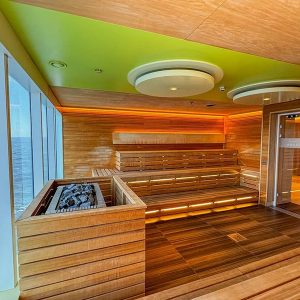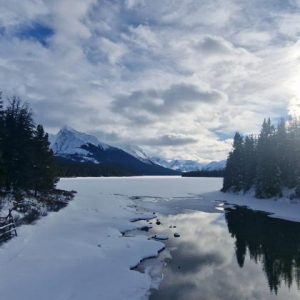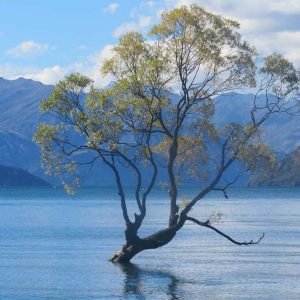Any country in which the king declares that “gross national happiness is more important than gross national product” has to have something special going for it. Bhutan is just that place: the mysterious, mountain kingdom on top of the Himalayas, tucked in between Tibet, China and India.
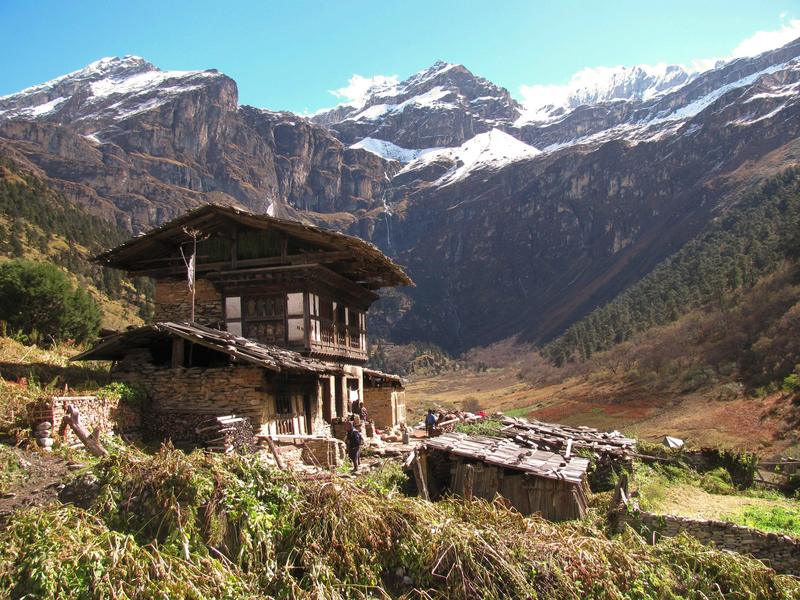 So when people ask – as they always do of those of us who travel the world for our work – “what is the place you would most like to re-visit?” I unhesitatingly answer ‘“Bhutan”. The images, the atmosphere, the sheer beauty of the country and its people have stayed with me since I filmed there some years ago.
So when people ask – as they always do of those of us who travel the world for our work – “what is the place you would most like to re-visit?” I unhesitatingly answer ‘“Bhutan”. The images, the atmosphere, the sheer beauty of the country and its people have stayed with me since I filmed there some years ago.
Even before we touched down, there, on the port side of the tiny Druk air jet, sitting on a duvet of white clouds, and backed by the clearest of blue skies, was the gleaming snow-capped summit of Mount Everest. It was a magical moment.
This is certainly a country worthy of a whole string of adjectives.
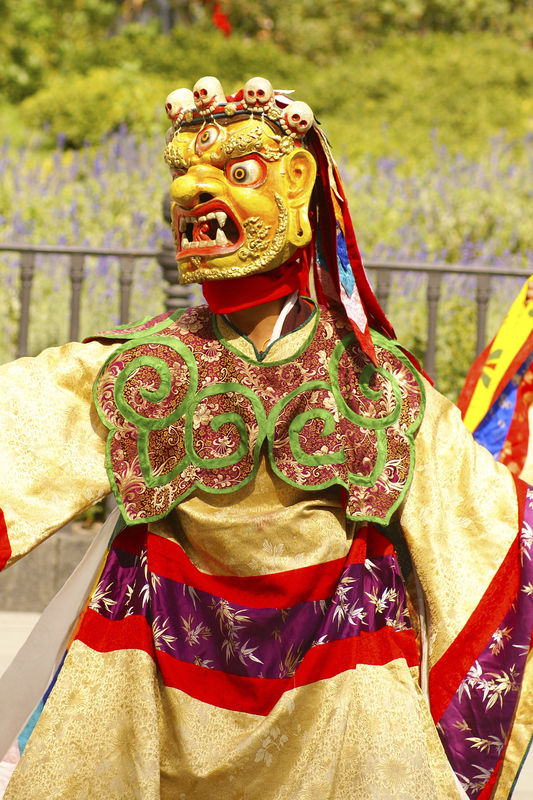 To start with, it’s spectacular. There are snow-capped mountains – you are, after all, thousands of feet up in the Himalayas. Waterfalls plunge dramatically into fast flowing rivers that snake through valleys and sub-tropical plains, green with terraces for rice and vegetables, dotted with farmhouses that actually resemble Swiss chalets being constructed of wood, and beautifully decorated with paintings of flowers and national symbols.
To start with, it’s spectacular. There are snow-capped mountains – you are, after all, thousands of feet up in the Himalayas. Waterfalls plunge dramatically into fast flowing rivers that snake through valleys and sub-tropical plains, green with terraces for rice and vegetables, dotted with farmhouses that actually resemble Swiss chalets being constructed of wood, and beautifully decorated with paintings of flowers and national symbols.
Can a country be serene? Well, Bhutan most certainly is. The monasteries, or Dzongs, throughout the kingdom, where Buddhist monks will welcome you as a visitor, to marvel at their beauty or stay a while to meditate. Many are accessible by car, others, clinging to the side of the rocks like a limpet, are only reached after a muscle testing trek through the mountains. 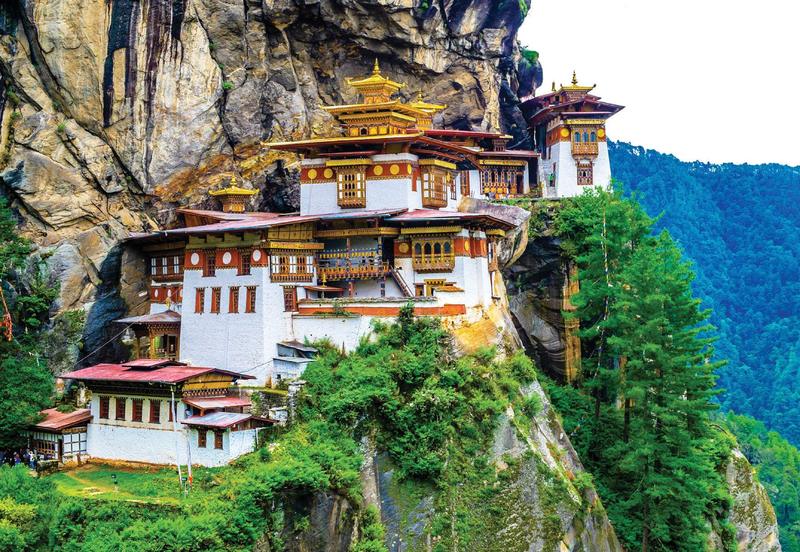 We walked uphill in thinning air for over three hours, past colourful prayer flags, just to glimpse in the distance, across yet another range of mountains, the amazing Tiger’s Nest.
We walked uphill in thinning air for over three hours, past colourful prayer flags, just to glimpse in the distance, across yet another range of mountains, the amazing Tiger’s Nest.
However, the overriding adjective for Bhutan is – beautiful. Not just the country, but also in the nature of the people, who are all warm, welcoming and seemingly, permanently smiling.
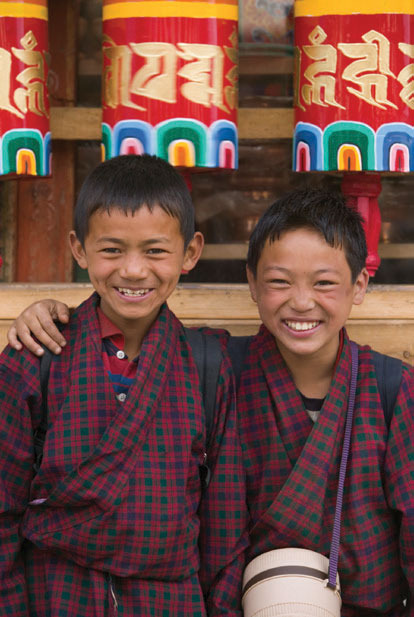 Bhutan has been very cautious in its approach to development and tourism to avoid any negative impacts on the country’s environment and culture. You need a visa to get there, and accommodation numbers are still relatively limited. However, their hot springs and natural remedies are superb for spa breaks, in addition to the trekking and cultural attractions that have previously drawn visitors.
Bhutan has been very cautious in its approach to development and tourism to avoid any negative impacts on the country’s environment and culture. You need a visa to get there, and accommodation numbers are still relatively limited. However, their hot springs and natural remedies are superb for spa breaks, in addition to the trekking and cultural attractions that have previously drawn visitors.
I have scores of photographs from the visit, of course. And more than that, my mind are bursting with pictures of fields of wild flowers, eating yak cheese (like chewing a Lego brick), seeing a pollution-free night sky, with millions of stars jostling for room in the inky blackness. A whole catalogue of memories and images that have left one powerful determination.
I have to go back to Bhutan – and soon.
Silver Travel Advisor recommends Cox and Kings for journeys to Bhutan.

